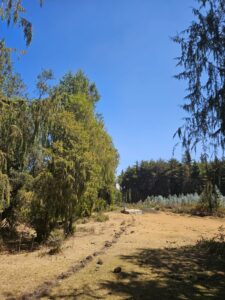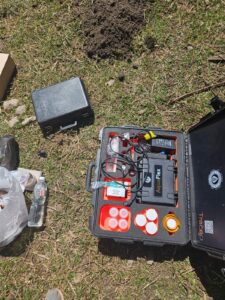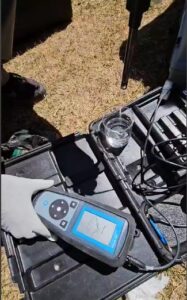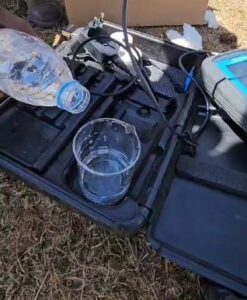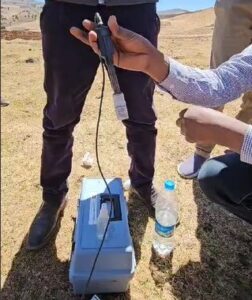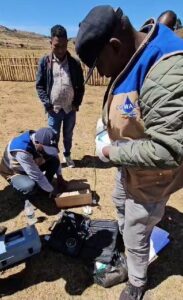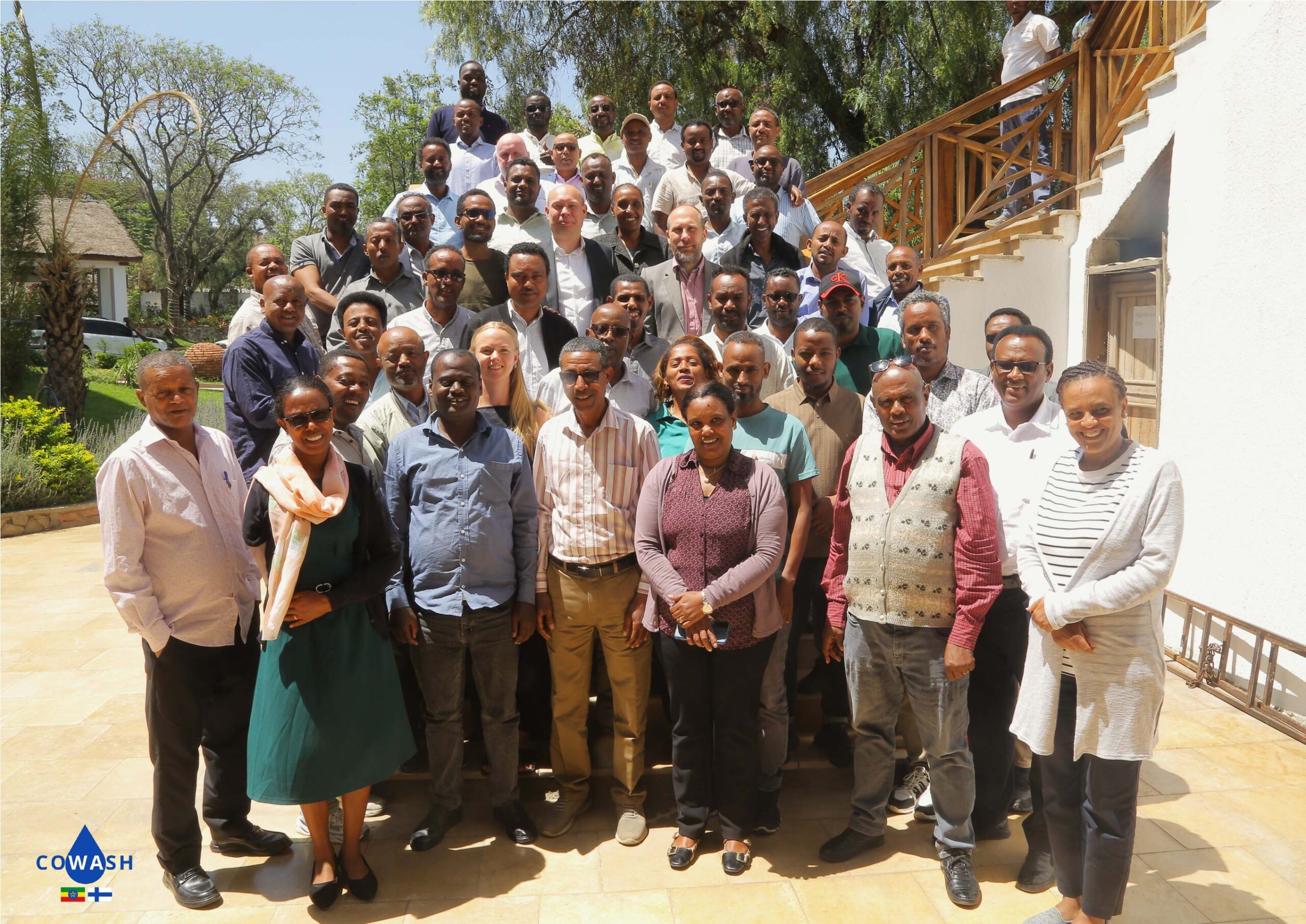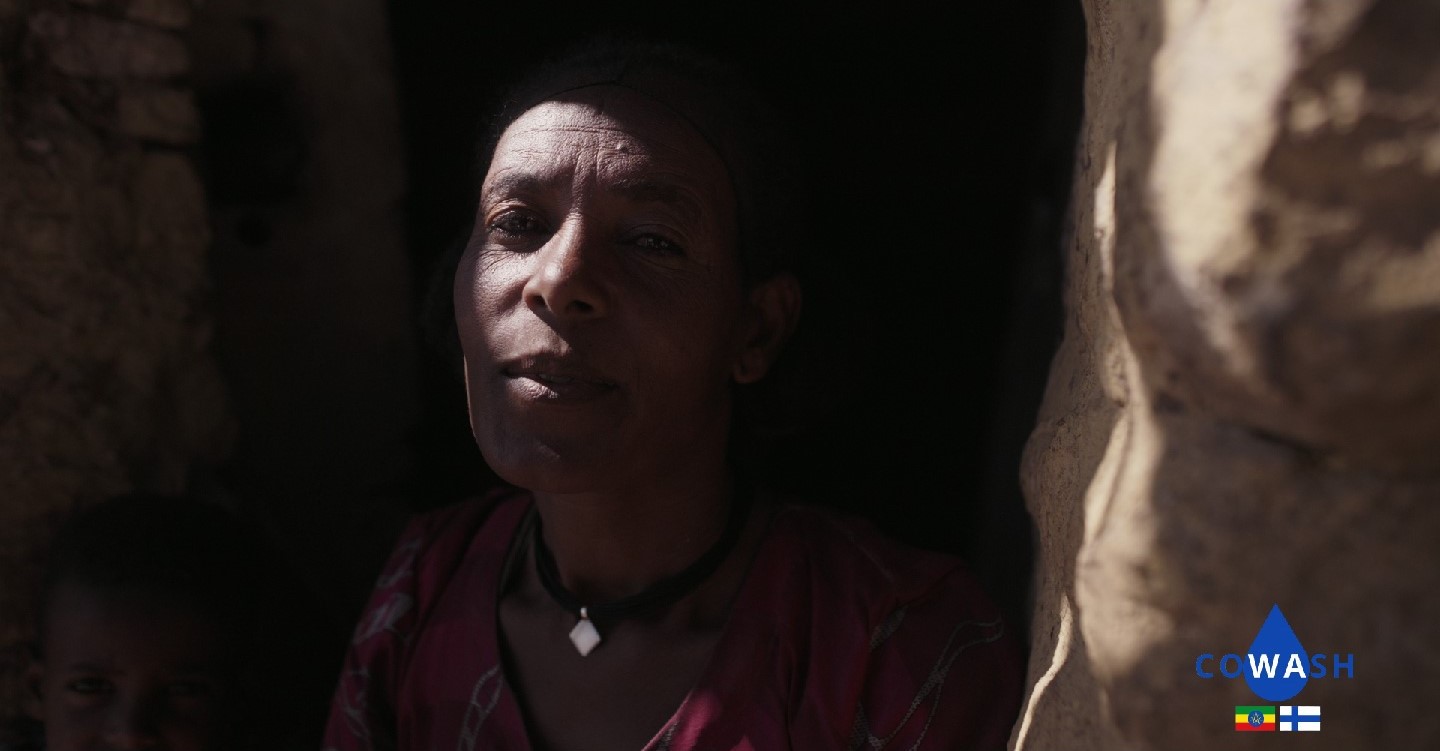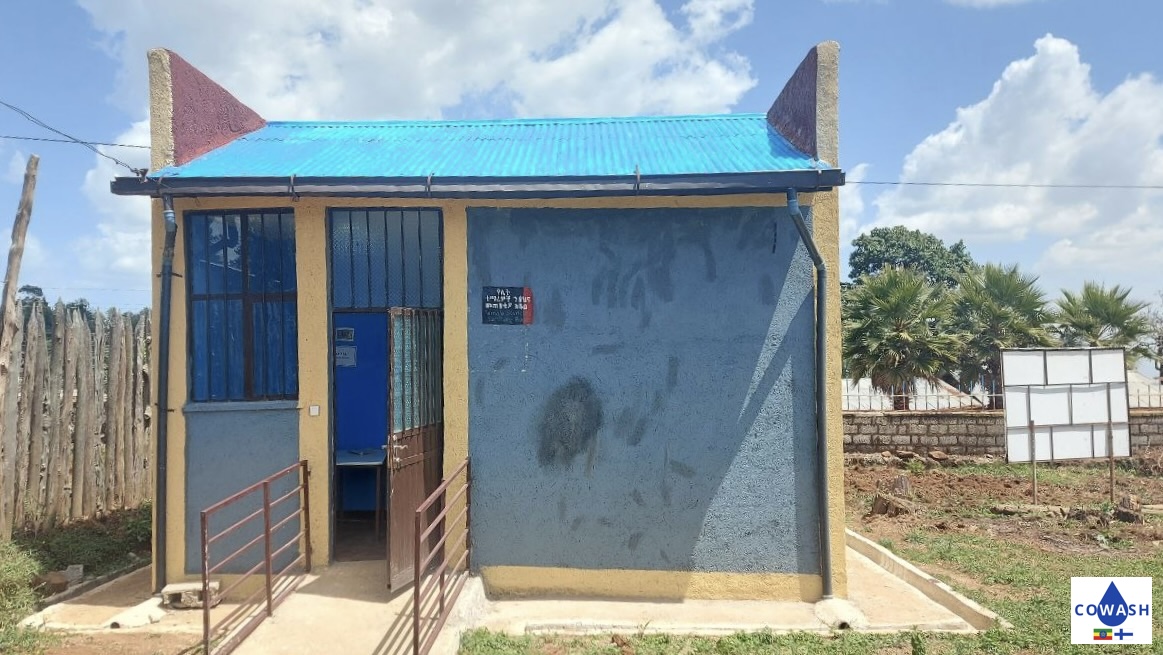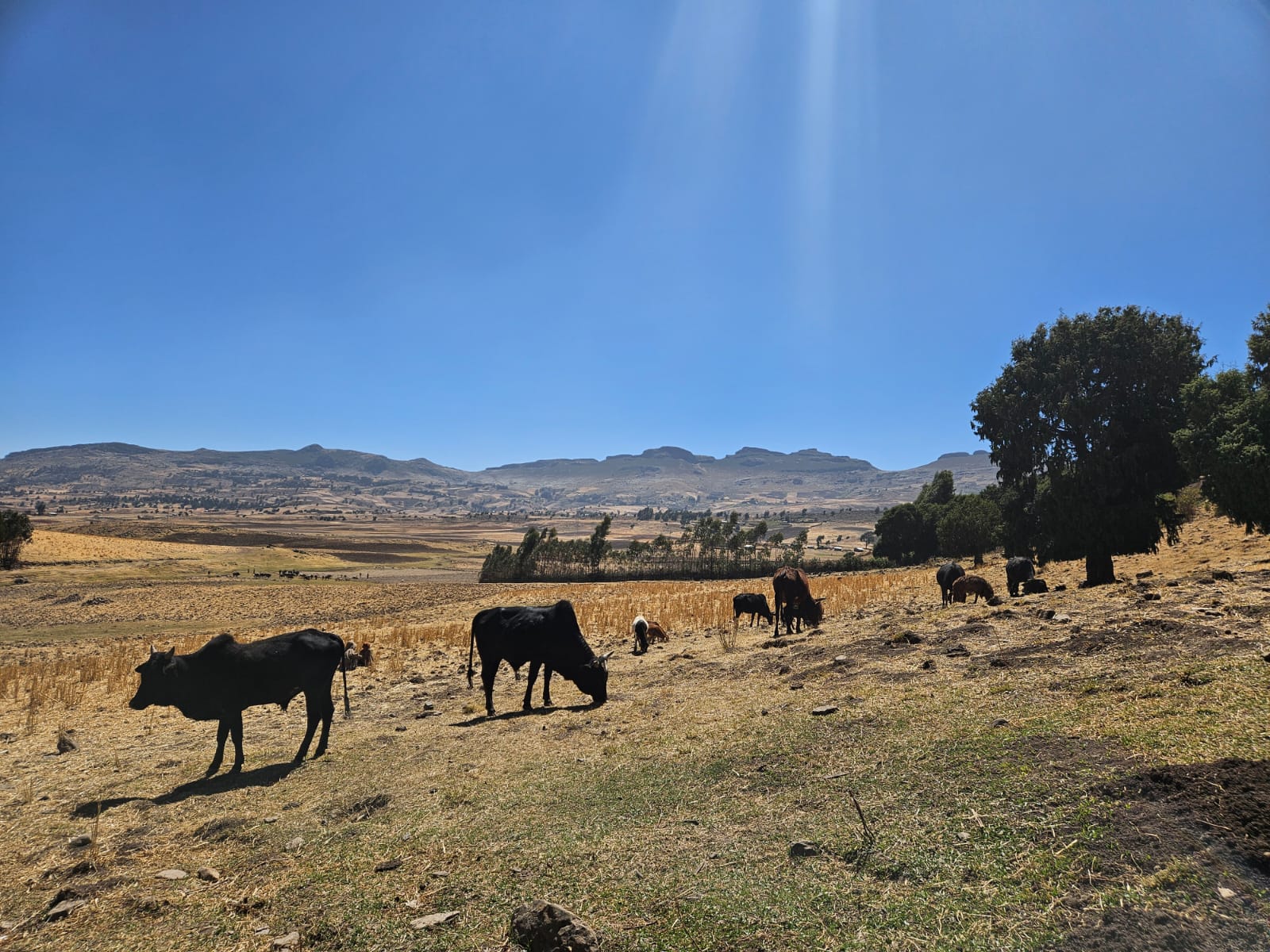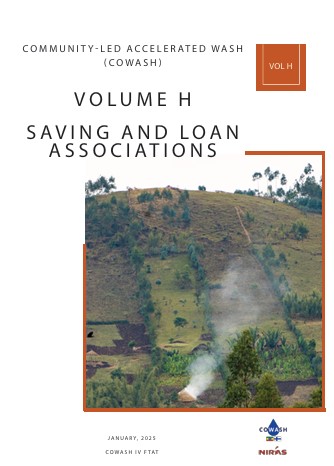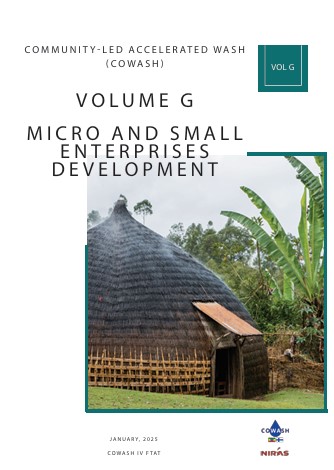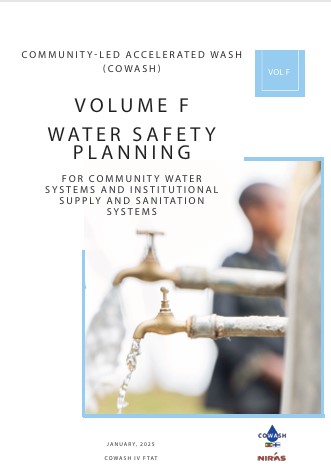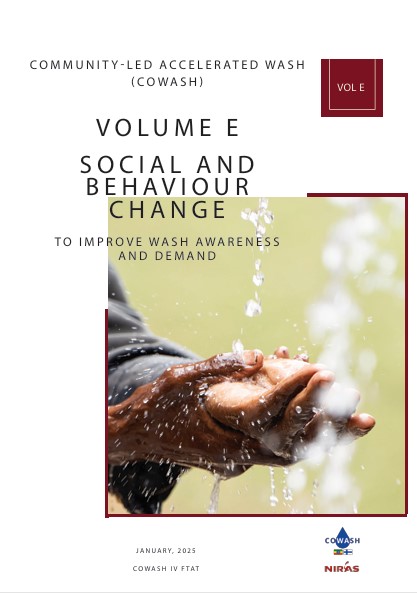Knowledge-Sharing and Planning Take Center Stage as COWASH IV Concludes Annual Workshop
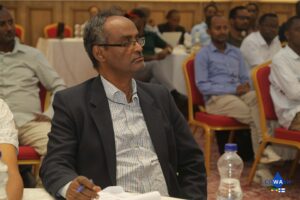 The Community-led Accelerated Water, Sanitation and Hygiene Project Phase Four successfully concluded its annual planning workshop last week in Bishoftu, laying the groundwork for the upcoming Ethiopian Fiscal Year (EFY). Held from April 8th to 10th, 2025, the three-day event brought together 52 participants, including key personnel from all eight project regions across Ethiopia and the Federal Technical Assistance Team (FTAT). The workshop served as a crucial platform for collaboration and strategic planning.
The Community-led Accelerated Water, Sanitation and Hygiene Project Phase Four successfully concluded its annual planning workshop last week in Bishoftu, laying the groundwork for the upcoming Ethiopian Fiscal Year (EFY). Held from April 8th to 10th, 2025, the three-day event brought together 52 participants, including key personnel from all eight project regions across Ethiopia and the Federal Technical Assistance Team (FTAT). The workshop served as a crucial platform for collaboration and strategic planning.
The event kicked off on Tuesday, April 8th, with regional teams presenting comprehensive progress reports, highlighting achievements and identifying challenges from the past year. This review set the stage for focused planning sessions.
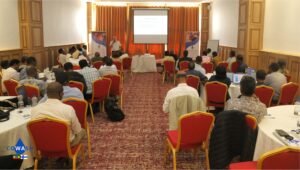 Presentations on different key topics were also conducted by the FTAT during the workshop fostering knowledge sharing among the participants. Mussie Hailegeorgis, COWASH IV’s Climate & Environment Risks and Water Safety Specialist, delivered a key presentation on integrating climate resilience into WASH programming. Following this, Mulatie Yinager, the project's SME & Microfinance Institution Specialist, discussed the vital role and implementation of WASH Saving and Loan Associations in ensuring sustainability. Sari Aroalho, Project Management and Development Advisor at COWASH IV, also delivered a presentation on how to collect and input geographical coordinates.
Presentations on different key topics were also conducted by the FTAT during the workshop fostering knowledge sharing among the participants. Mussie Hailegeorgis, COWASH IV’s Climate & Environment Risks and Water Safety Specialist, delivered a key presentation on integrating climate resilience into WASH programming. Following this, Mulatie Yinager, the project's SME & Microfinance Institution Specialist, discussed the vital role and implementation of WASH Saving and Loan Associations in ensuring sustainability. Sari Aroalho, Project Management and Development Advisor at COWASH IV, also delivered a presentation on how to collect and input geographical coordinates.
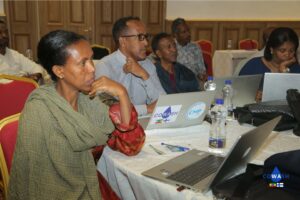 Participants also engaged in detailed planning sessions and had the opportunity to interact directly with representatives from the Embassy of Finland during a dedicated question-and-answer session. Throughout the workshop, COWASH IV's six-part documentary series, "Transforming Lives, Empowering Communities," screened provided inspiration by showcasing the real-world impact of the project.
Participants also engaged in detailed planning sessions and had the opportunity to interact directly with representatives from the Embassy of Finland during a dedicated question-and-answer session. Throughout the workshop, COWASH IV's six-part documentary series, "Transforming Lives, Empowering Communities," screened provided inspiration by showcasing the real-world impact of the project.
Participants highlighted the workshop's value beyond planning. "This annual planning meeting helps us meet all regional staff in one place, plan together, hear different perspectives, and share experiences, especially on working under pressure," said Ermiyas Mulgueta, WASH SLA Specialist at COWASH IV. Abeba Asegede, a CMP specialist with the project, added that the workshop was a crucial event, providing a chance to get updates on work progress and share experiences from different regions. It particularly helped them to get updated on how well the project is progressing nationally and how its community-managed approach builds ownership, enabling effective work despite challenges, said Abeba. She also noted the event fostered team spirit and collaboration among staff from diverse regions.
With detailed action plans now being finalized, COWASH IV is poised to continue its impactful work in improving water, sanitation, and hygiene access across Ethiopia in the coming year.
From Rural Ethiopia: COWASH IV's Documentary Series Shares Powerful Stories
COWASH IV has released a compelling six-part documentary series, “Transforming Lives, Empowering Communities,” showcasing the profound impact of improved Water, Sanitation and Hygiene (WASH) services in rural Ethiopia. Produced in collaboration with habeshaview Technologies and Multimedia and SewMehon Films Production, the series documents the resilience and hope of communities across five Ethiopian regions. The five-month production involved two teams traveling to 12 woredas, documenting diverse stories of change.
The documentaries highlight critical themes, including the vital role of women in WASH initiatives, the life-changing impact of safe WASH supply on communities, the project’s effort to restore WASH services in Tigray after the conflict, development of climate-resilient WASH systems and the success of WASH saving and loan associations as well as market-based sanitation supply centers. It also explores the COWASH journey from 2011 and its contributions to improved WASH in rural Ethiopia.
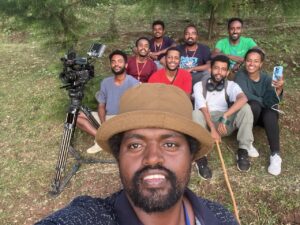 Sewmehon Yismaw, producer of the documentary series, calls the entire production process a deeply memorable experience. He found it particularly inspiring to witness a bilateral project so committed to improving access to safe water in rural Ethiopia, a critical need. The production crew was impressed by the warmth and resilience of the communities they encountered, and the strong sense of ownership these communities felt towards their WASH facilities. Sewmehon also noted a profound understanding of COWASH’s impact, with “communities in Tigray seeing it as a lifeline, while those in Southern Ethiopia viewed it as a pathway out of hardship.”
Sewmehon Yismaw, producer of the documentary series, calls the entire production process a deeply memorable experience. He found it particularly inspiring to witness a bilateral project so committed to improving access to safe water in rural Ethiopia, a critical need. The production crew was impressed by the warmth and resilience of the communities they encountered, and the strong sense of ownership these communities felt towards their WASH facilities. Sewmehon also noted a profound understanding of COWASH’s impact, with “communities in Tigray seeing it as a lifeline, while those in Southern Ethiopia viewed it as a pathway out of hardship.”
Behind the Scenes: Challenges and Insights
Producing the COWASH documentary series was a demanding yet deeply rewarding endeavor, as both habeshaview and SewMehon Films Prodution crew attest. The sheer logistics of reaching remote filming locations proved a primary hurdle. The crew often faced arduous journeys, navigating difficult roads and trekking for hours. Beyond the physical challenges, explaining complex concepts like climate change to diverse audiences required sensitivity and careful communication. The multi-lingual nature of the project also demanded skillful navigation.
Sewmehon Yismaw, the producer, highlighted the intricate process of coordinating directors with varying experiences and translating their visions into compelling visuals. He emphasized the collaborative nature of the project, praising the COWASH IV team’s invaluable feedback during post-production, which helped refine the narration and maximize the impact of the footage. He also shared the distressing experience of crew members contracting malaria, which underscored the daily struggles faced by the communities they were documenting.
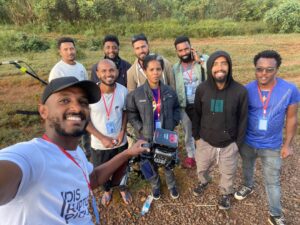 Despite these challenges, the production team was profoundly inspired by the impact of COWASH IV. Traveling across Ethiopia, they witnessed the persistent need for improved WASH facilities, a situation Sewmehon described as a “truly regrettable fact” to witness in this century. However, he found inspiration in COWASH IV’s efforts, particularly the success story in Sidama and the rapid response to restore services in Tigray. The resulting documentaries, he believes, are both emotionally impactful and address crucial societal issues like women’s empowerment, showcasing community-driven solutions.
Despite these challenges, the production team was profoundly inspired by the impact of COWASH IV. Traveling across Ethiopia, they witnessed the persistent need for improved WASH facilities, a situation Sewmehon described as a “truly regrettable fact” to witness in this century. However, he found inspiration in COWASH IV’s efforts, particularly the success story in Sidama and the rapid response to restore services in Tigray. The resulting documentaries, he believes, are both emotionally impactful and address crucial societal issues like women’s empowerment, showcasing community-driven solutions.
 Mahlet Ayenew, Project Manager at habeshaview Technology and Multimedia, echoed the sentiment of the project’s complexity and significance. She expressed pride in telling the stories of fellow Ethiopians and showcasing the project’s impact to a global audience. The nationwide scope of COWASH presented its own set of challenges, particularly condensing a decade of work into concise, impactful videos. The sheer volume of footage required meticulous selection and compilation. However, these challenges underscored the dedication of the COWASH team, who navigated difficult terrains with ease, demonstrating their deep connection with the communities they serve, says Mahlet.
Mahlet Ayenew, Project Manager at habeshaview Technology and Multimedia, echoed the sentiment of the project’s complexity and significance. She expressed pride in telling the stories of fellow Ethiopians and showcasing the project’s impact to a global audience. The nationwide scope of COWASH presented its own set of challenges, particularly condensing a decade of work into concise, impactful videos. The sheer volume of footage required meticulous selection and compilation. However, these challenges underscored the dedication of the COWASH team, who navigated difficult terrains with ease, demonstrating their deep connection with the communities they serve, says Mahlet.
Ultimately, both Sewmehon and Mahlet believe the filmmakers emerged with a powerful documentary series that showcases the transformative impact of COWASH and the resilience of the Ethiopian communities it serves.
Rewarding Experiences, Inspiration, and Impact
Despite the challenges, the production of the COWASH documentary series was a profoundly rewarding experience for both. Sewmehon expressed his deep appreciation for the landscapes and communities they encountered, particularly in Southern Ethiopia. “The landscapes and communities we filmed were incredibly rewarding, aesthetically and culturally,” he shared, adding that he was so inspired he hopes to return and create a film there. He also praised the collaborative spirit of the COWASH IV team.
Mahlet, echoed this sentiment, highlighting the team’s exceptional collaboration throughout the entire process. “The COWASH team was exceptionally collaborative throughout the entire process which has been instrumental in creating a successful documentary,” noted Mahlet.
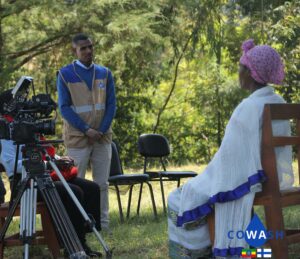
The production process also deepened the filmmakers’ understanding of COWASH’s profound impact on rural communities. “This production process deepened our understanding of COWASH’s profound impact on rural communities,” Mahlet stated. “Witnessing the tangible benefits and the strong sense of community ownership was truly inspiring.” She emphasized the community-centric approach that distinguishes COWASH, noting that everyone felt a personal stake in the project’s success and sustainability.
The documentary series is available on the COWASH IV YouTube channel, offering a unique window into the transformative impact of improved WASH services in rural Ethiopia.
COWASH IV: Green Legacy Integration and Water Quality Testing in Focus
Ethiopia, a nation of around 120 million, faces significant challenges due to its vulnerability to drought and natural disasters. The country’s reliance on climate-sensitive sectors like rain-fed agriculture further exacerbates these problems. In response, Ethiopia launched the Green Legacy Initiative in 2019, a program encompassing agroforestry, forest sector development, urban greening, and integrated water and soil resource management. The COWASH IV project is exploring ways to integrate its efforts with this crucial national initiative.
The COWASH IV team visited the Bale Goba and Bale Dinsho Woredas in the Oromia region from February 4th to 7th, 2025 to discuss potential integration of COWASH IV’s safe water supply work with the Green Legacy Initiative. The team met with Woreda Agriculture Offices and key project partners in both Woredas to discuss the feasibility of piloting the Green Legacy Initiative within catchments of COWASH IV water supply schemes.
The discussions yielded positive results. In both Dinsho and Goba Woredas, pilot programs will be launched, engaging communities in tree planting activities within upstream catchments. This community-led approach aims to improve long-term water source sustainability and resilience. Under the agreement, COWASH IV will provide crucial technical assistance and community mobilization support, while the respective Woredas will cover the costs of seeds and operational expenses. These pilot projects are expected to provide valuable insights and best practices, informing broader integration between COWASH IV and the Green Legacy Initiative across the region. Over 25 individuals participated in the discussions and field visits, including members of Woreda WASH Team, Woreda technical experts.
Ensuring Safe Drinking Water Supply: A Parallel Priority
In addition to the Green Legacy discussions, the COWASH IV team concurrently conducted critical water quality testing in the Bale Zone. The test was conducted on nine water schemes serving communities, schools, and health posts, focusing on key parameters, including pH levels (acidity/alkalinity), turbidity (water clarity), and bacterial contamination, ensuring that drinking water meets safety standards. This regular monitoring is a vital component of COWASH IV’s commitment to protecting community health.
Expanding its reach, the COWASH IV team also conducted water quality testing in the Sidama Region from February 17-22, 2025. The test was conducted on six community and institutional water points in Daela and Gorche Woredas.
These combined efforts, integrating with the Green Legacy Initiative and prioritizing water quality, underscore COWASH IV’s commitment to providing Climate Resilient, adequate and safe water access and promoting environmental sustainability for communities across Ethiopia.
